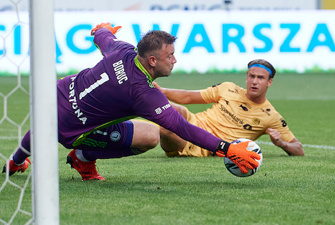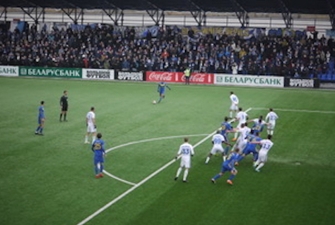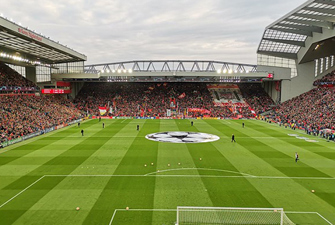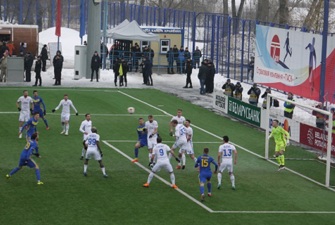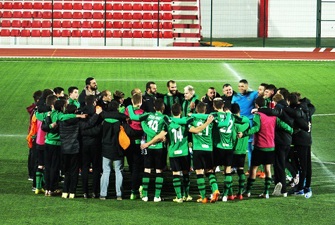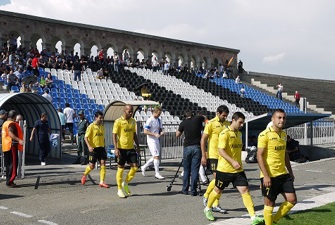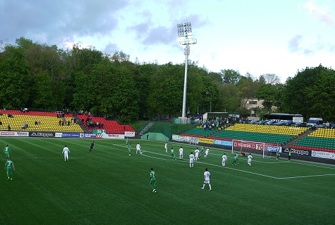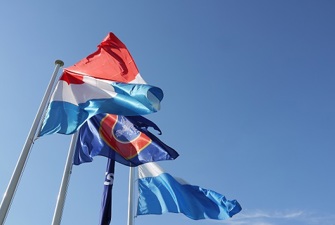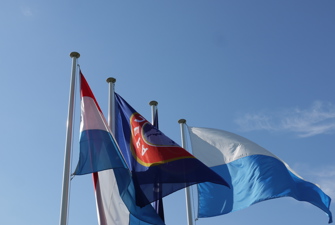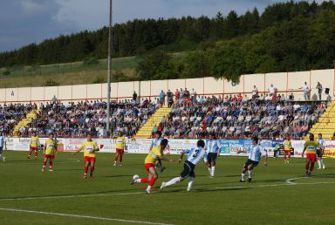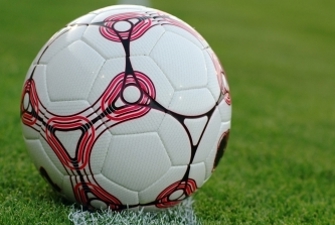Champions League 2011/12: more of the same
Comment: English side Manchester City may be about to embark on their first Champions League campaign but the riches earned by clubs playing in continental competitions is bankrolling increased domination of domestic leagues. That is the evidence in Play the Game’s annual Champions League diversity index for 2011, which shows a third of the countries in this year’s competition are represented by exactly the same sides as a year ago.
UEFA has 53 members and all but Liechtenstein, which has no national league, now enter teams in the Champions League (CL). Of those 52 countries, 16 will be represented by exactly the same club – or set of clubs - as last season.
The PTG index works by dividing the total number of places available per nation over the 19 years since the competition began by the number of different clubs that took those places. This gives an index figure per country.
A high total signifies a dearth of different clubs taking part in the competition. Providing evidence of local domination that can often be fuelled by the rising cash sums paid out to teams taking part.
The overall figure for the index is 3.91 – up from 3.44 two years ago – which illustrates that, despite headline grabbing appearances by the likes of Manchester City, a club funded by Middle Eastern royalty, the same number of clubs often take part year-after-year in Europe’s biggest club competition.
Ukraine’s duopoly
Current holders Barcelona have only missed out on the CL twice in 19 years but the country that has the same teams coming back each year and is top of the index is the Ukraine. Only two Ukrainian sides – Dynamo Kiev and 2009 UEFA Cup winners Shaktar Donetsk – have ever represented the country in the competition.
Elsewhere, Pyunik have taken every Armenian place in the CL since 2002/03 and are back again this season. Dinamo Zagreb will also take Croatia’s CL place for the sixth season in a row in 2011/12 and BATE Borisov of Belarus comes back for a fifth season running.
At the opposite end of the index is Montenegro, which only started entering sides in the competition in 2007/08 and four different clubs have taken the five places on offer from UEFA.
In some countries, local monopolies are broken. Moldovan club Sheriff Tiraspol had enjoyed a place in the CL qualifiers since 2001/02 but a decade of dominance has been broken and Dacia Chisinau will be Moldova’s representatives this season.
But the end of these monopolies can often prove short-lived. Rosenberg played in the competition without a break from 1995/96 to 2006/07 then missed out but have since returned and for the last two seasons have been Norway’s only representative. Skonta Riga took Latvia’s place for the first 11 seasons, then missed out for five years but have returned in 2011/12.
The world’s richest competition
For clubs such as Skonta Riga, reaching the group stages is unlikely but even getting to the play-off round was worth a guaranteed €2.1 million from the 2010/11 season.
Any side progressing to the group stage was guaranteed €3.9 million plus another €550,000 per group match played. A group stage win is worth €800,000 and a draw €400,000. Clubs reaching the first knockout get €3 million, while the quarter-finalists receive €3.3 million apiece and there is at least €4.2 million for each semi-finalist.
Barcelona were guaranteed €9 million for their win on May 28 over Manchester United, who received at least €5.6 million, but the full amount, which is determined by money from the ‘market pool’ from TV revenue, will be far higher.
UEFA will not disclose the cash distribution for the 2010/11 tournament until the middle of August but influential American business magazine Forbes recently claimed that the Champions League was the world’s richest knock-out tournament.
According to the magazine, Barcelona made U$D43.4 million from last season’s triumph. That is, says Forbes, U$D9.7 million more than Spain received from winning Euro 2008 but for many teams those figures remain hypothetical.
The 2011/12 Champions League kicked off in June with the champions of Andorra and San Marino, Santa Coloma and Tre Fiori respectively, eliminated before most players from Europe’s top sides had even returned for pre-season training.
PLAY THE GAME 2011 CHAMPIONS LEAGUE DIVERSITY INDEX
| Country | Position | apps | Clubs | INDEX |
| Ukraine | 1 | 28 | 2 | 14,0 |
| Scotland | 2 | 27 | 3 | 9,0 |
| Greece | 3 | 34 | 4 | 8,5 |
| England | 4 | 60 | 9 | 6,7 |
| Croatia | 5 | 19 | 3 | 6,3 |
| Holland | 6= | 37 | 6 | 6,2 |
| Portugal | 37 | 6 | 6,2 | |
| Belgium | 7 | 28 | 5 | 5,6 |
| Italy | 8 | 60 | 11 | 5,5 |
| Turkey | 9 | 31 | 6 | 5,2 |
| Latvia | 10= | 15 | 3 | 5,0 |
| Serbia | 15 | 3 | 5,0 | |
| Spain | 12 | 60 | 12 | 5,0 |
| Cyprus | 13= | 19 | 4 | 4,8 |
| Israel | 19 | 4 | 4,8 | |
| Russia | 15 | 32 | 7 | 4,6 |
| Germany | 16 | 50 | 11 | 4,5 |
| France | 17 | 46 | 11 | 4,2 |
| Luxembourg | 18 | 16 | 4 | 4,0 |
| Czech Rep. | 19 | 27 | 7 | 3,9 |
| Armenia | 20= | 15 | 4 | 3,8 |
| Estonia | 15 | 4 | 3,8 | |
| Lithunia | 15 | 4 | 3,8 | |
| Moldova | 15 | 4 | 3,8 | |
| Slovenia | 15 | 4 | 3,8 | |
| Austria | 23 | 6 | 3,8 | |
| Denmark | 26= | 21 | 6 | 3,5 |
| Norway | 21 | 6 | 3,5 | |
| Bulgaria | 28= | 15 | 5 | 3,0 |
| Malta | 15 | 5 | 3,0 | |
| N Ireland | 15 | 5 | 3,0 | |
| Wales | 15 | 5 | 3,0 | |
| Romania | 32 | 22 | 8 | 2,8 |
| Poland | 34 | 18 | 7 | 2,6 |
| Switzerland | 34 | 23 | 9 | 2,6 |
| San Marino | 35 | 5 | 2 | 2,5 |
| Albania | 36= | 15 | 6 | 2,5 |
| Faroes | 15 | 6 | 2,5 | |
| Finland | 15 | 6 | 2,5 | |
| Georgia | 15 | 6 | 2,5 | |
| Iceland | 15 | 6 | 2,5 | |
| Slovakia | 15 | 6 | 2,5 | |
| Hungary | 42 | 18 | 8 | 2,3 |
| Azerbaijan | 43 | 13 | 6 | 2,2 |
| Ireland | 44 | 15 | 7 | 2,1 |
| Sweden | 45 | 18 | 9 | 2,0 |
| Belarus | 46= | 15 | 8 | 1,9 |
| Macedonia | 15 | 8 | 1,9 | |
| Andorra | 48 | 5 | 3 | 1,7 |
| Bosnia-Herz. | 49 | 12 | 8 | 1,5 |
| Kazakstan | 50 | 10 | 7 | 1,4 |
| Montenegro | 51 | 5 | 4 | 1,3 |
| *Liechtenstein does not enter teams in the Champions League. | ||||

